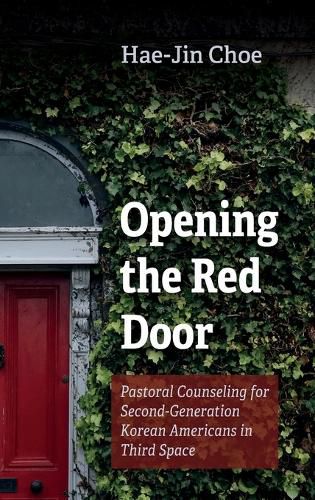Readings Newsletter
Become a Readings Member to make your shopping experience even easier.
Sign in or sign up for free!
You’re not far away from qualifying for FREE standard shipping within Australia
You’ve qualified for FREE standard shipping within Australia
The cart is loading…






This title is printed to order. This book may have been self-published. If so, we cannot guarantee the quality of the content. In the main most books will have gone through the editing process however some may not. We therefore suggest that you be aware of this before ordering this book. If in doubt check either the author or publisher’s details as we are unable to accept any returns unless they are faulty. Please contact us if you have any questions.
Many second-generation Korean Americans (SGKAs) are living lives of marginality on the edge of Korean American and American cultures. This double life often leads to heightened mental health concerns. The rise of Asian hate crimes in this country in recent months have added to the distress in this population. Due to cultural stigma, however, SGKAs may not seek out counseling or other mental health services. If they do, their unique cultural formation is often not fully addressed, impeding growth and healing. Red Door Ministry (RDM), a pastoral counseling center that started at a local Korean-American church, serves as a model for addressing this issue. Built from a postcolonial understanding of third space, RDM is constructed with various culturally sensitive elements that allow SGKAs to move from places of shame on the margins to empowered new centers. This transformation is examined by four in-depth interviews of RDM clients. These clients show that healing and empowerment were possible because their complex cultural hybridity was addressed in the process of counseling. This process is analyzed using concepts from Western psychological theories, Korean American theology, and postcolonial theory.
$9.00 standard shipping within Australia
FREE standard shipping within Australia for orders over $100.00
Express & International shipping calculated at checkout
This title is printed to order. This book may have been self-published. If so, we cannot guarantee the quality of the content. In the main most books will have gone through the editing process however some may not. We therefore suggest that you be aware of this before ordering this book. If in doubt check either the author or publisher’s details as we are unable to accept any returns unless they are faulty. Please contact us if you have any questions.
Many second-generation Korean Americans (SGKAs) are living lives of marginality on the edge of Korean American and American cultures. This double life often leads to heightened mental health concerns. The rise of Asian hate crimes in this country in recent months have added to the distress in this population. Due to cultural stigma, however, SGKAs may not seek out counseling or other mental health services. If they do, their unique cultural formation is often not fully addressed, impeding growth and healing. Red Door Ministry (RDM), a pastoral counseling center that started at a local Korean-American church, serves as a model for addressing this issue. Built from a postcolonial understanding of third space, RDM is constructed with various culturally sensitive elements that allow SGKAs to move from places of shame on the margins to empowered new centers. This transformation is examined by four in-depth interviews of RDM clients. These clients show that healing and empowerment were possible because their complex cultural hybridity was addressed in the process of counseling. This process is analyzed using concepts from Western psychological theories, Korean American theology, and postcolonial theory.